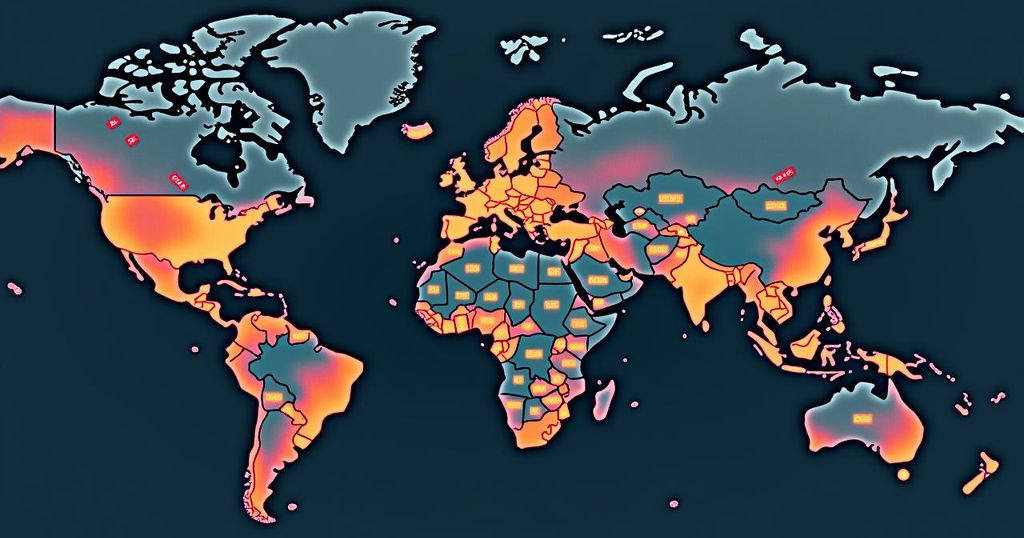Global Spread of Mpox: Current Cases and Public Health Implications

Mpox, a potentially more dangerous virus, is spreading internationally, with cases reported in Sweden, Thailand, the Philippines, and Pakistan. The World Health Organization has declared it a public health emergency. In Africa, the Democratic Republic of the Congo remains the epicenter, with thousands infected. Vigilance in monitoring and response is critical as the virus continues to evolve and spread.
The mpox virus, which has recently shown evidence of a more virulent strain, is now a significant public health concern, spreading rapidly beyond its original outbreak zones in East Africa. Cases of mpox have been reported in several countries, including four outside of Africa—specifically, Sweden, Thailand, the Philippines, and Pakistan. The World Health Organization (WHO) designated this virus as a public health emergency of international concern, emphasizing that it does not signify a new COVID-19 pandemic, but it warrants attention due to its potential for widespread transmission. The outbreak is primarily associated with the Clade 1 strain, which has been further identified in the DRC and neighboring regions. This is the most serious variant detected to date and can be transmitted through direct skin contact. In Africa, particularly, the Democratic Republic of the Congo has experienced a significant surge in cases, with over 13,000 infections reported as of August 2023. Meanwhile, variants such as Clade 2 are still present, albeit less virulently, and were responsible for a previous multicountry outbreak. The latest data indicates that at least 14 African nations are grappling with mpox infections, with the DRC accounting for approximately 96 percent of the reported cases. Other countries in Africa, including Uganda and Cameroon, have also identified cases of the Clade 1 variant. In Asia, newly confirmed instances arise from imported cases, with authorities in Thailand identifying the first case of the Clade 1b variant, linked to a returning traveler from Africa. The Philippines has reported cases attributed to the less severe Clade 2, and Pakistan has recorded its inaugural case of this variant as well. In Europe, Sweden has noted one confirmed case of mpox from Clade 1, highlighting the risk of further outbreaks given Europe’s connectivity with Africa. Meanwhile, the Americas and Oceania report no new cases of Clade 1, although vigilance remains crucial in those regions. Health organizations worldwide are preparing for potential cases and advocating for protective measures.
Mpox is a viral disease that has seen a resurgence in various regions, notably in Africa where outbreaks have occurred since 2022. Traced back to the Democratic Republic of the Congo, the mpox virus is characterized by two significant strains: Clade 1 and Clade 2. While Clade 2 was associated with less severe manifestations and prior multicountry outbreaks, Clade 1 represents a more dangerous variant. As concerns grow about possible international spread, the World Health Organization has placed mpox under alert, underlining the importance of monitoring and controlling its transmission globally. The nature of its spread through skin contact necessitates added caution, especially in regions with existing cases.
In conclusion, the global spread of mpox, particularly the emergence of the more virulent Clade 1 variant, poses a pressing public health challenge. With cases reported in multiple countries outside Africa, including Sweden, Thailand, the Philippines, and Pakistan, there is an urgent need for heightened surveillance and public health measures worldwide. Health authorities continued to face significant challenges as they track the virus’s movement and manage outbreaks effectively. Understanding the nature of the virus’s spread and implementing proactive health strategies are essential to mitigating its impact.
Original Source: www.aljazeera.com






